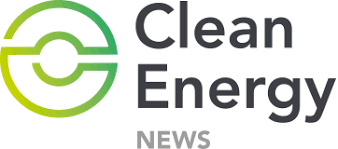Nigeria Union of Petroleum and Natural Gas Workers, NUPENG, has
dragged major International Oil Companies, IOCs, before the ongoing
107th session of the International Labour Organisation, ILO, over
alleged anti-labor policies, practices, and activities.
Presenting NUPENG’s complaints before ILO Committee on the Application
of Standards, Diana Junguera Curiel, Energy Industry Director,
IndustriAll Global Union, specifically, named Shell Petroleum,
Chevron, Mobil, NAOC-AGIP and Total E&P as the most guilty.
Lamenting that the policies of the IOCs had seriously affected the
membership and capacity of the unions, she warned that the union might
be forced into industrial action before the end of the month as it had
already issued a 21-day ultimatum to the government and employers in
the Nigerian oil and gas industry last week.
Against the ILO conventions and extant Labour law in Nigeria, Curiel
noted that the anti-labor activities of the companies had not allowed
unionization and frustrated efforts to unionize workers.
Curiel in her presentation said the status of NUPENG as a trade union
in terms of membership, financial capacity and ability to adequately
organize and represent Nigerian Oil and Gas workers had been adversely
affected by repressive anti-labor/union activities of multinational
oil companies.
“The struggle against this form of workers exploitation is almost
three decades old, and it has been a herculean task, membership of the
union had been seriously depleted, indecent work entrenched resulting
into an upsurge in crime and social dislocations and defiant
behaviors. These international oil companies, through various policies
and practices, entrenched anti-labor/union organizing situation in the
Nigerian oil and gas industry,’’ she said.
She said these anti-labor and anti-union situations included refusal
to allow unionization of contract and service contracts workers and
fragmentation of contracts into thousands to frustrate the efforts of
the union, among others.
Curiel said: “The wages paid to workers by the IOCs in Nigeria are
poor and very ridiculous. An average precarious worker is paid less
than $200 per month.”
‘’As a result of the prevalent practice of casual/contract employment
policy by these multinationals, the workers are denied collective
bargaining agreement, CBA, and in some instances, where a CBA is
signed, the multinationals through their contractors, refuse to
implement, despite all entreaties.
“More worrisome is the wicked elopement of contract workers severance
benefits by contractors to these IOCs. A Nigerian would work under
harsh and hard conditions for several years, receiving peanuts and yet
while the contract ends, his/her severance benefits are taken away by
contractors hired by an international oil company.
‘’Most times, when confronted, they feign ignorance of the whereabouts
of the contractor. The health and safety conditions of work of these
workers are disheartening, they are constantly exposed to the
hazardous chemical; no personal protective equipment, no access to a
medical facility, no annual vacation, no insurance cover, long hours
of work, with no time off from work.”
